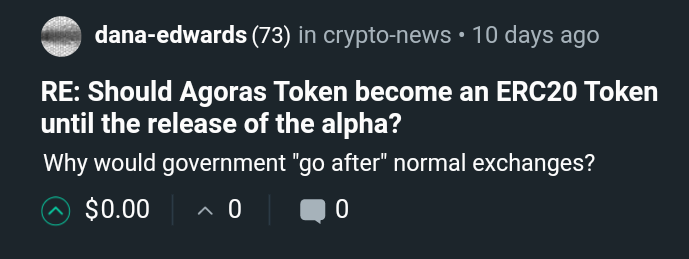You are viewing a single comment's thread from:
RE: Crypto crackdown in progress

Are now convinced that decentralised exchanges have value? Governments hate freedom and love to steal your money...

Are now convinced that decentralised exchanges have value? Governments hate freedom and love to steal your money...
Now, when I asked why would government go after "normal exchanges" I'm talking about the exchanges which follow all the laws, rules, guidelines, social norms, and which adjust to meet the current public sentiment of the nation they operate in. If you're doing things right and running the business right then the exchange will be as regulated as any other financial institution and will become part of the local/national banking system.
If it's a club then the regulated exchanges are part of the traditional finance club. In order to access the traditional fiat there has to be these regulated exchanges. Otherwise you cannot expect high net worth individuals to ever get involved with crypto if they have to use some shady decentralized exchange which could be run by North Korea.
I don't think they'll be valuable because no one is going to use them. If only criminals, money launderers, terrorists, spies, (insert bad association), are using the platform then they'll just accuse anyone who uses them to be involved in money laundering, terrorism or something else which renders decentralized exchanges useless to all by the fringes.
In my opinion we require regulated centralized exchanges which can connect to the legitimate fiat markets. I do not think these crypto to crypto exchanges are ever going to be used by billions of people and I doubt you believe that either. There is a reason why Coinbase and Gemini are necessary.
True, but if cryptocurrencies become harder to acquire ( they are quite easy to spend, even with legitimate companies 😉) people will move to more irregular platforms. I expect to see growth in decentralised exchanges, but hey, I might be wrong. I don't think regulations will solve any real problems, as the "solutions" might be worse than the risks I have now with unregulated exchanges.